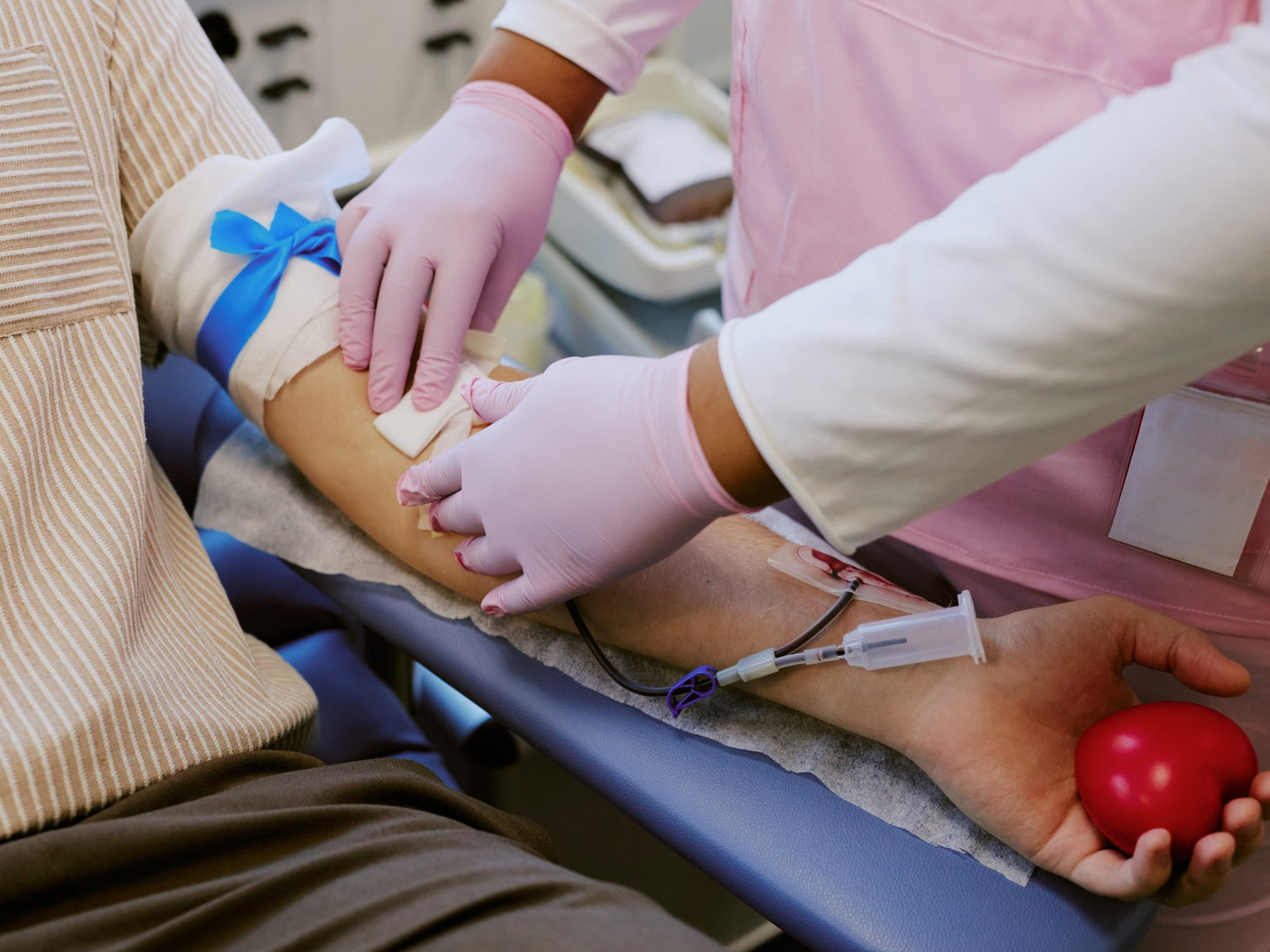Are you considering donating blood but feeling unsure about how to prepare? Maybe you've donated before but experienced fatigue or dizziness afterward? Whether you're a first-time donor or a regular contributor, knowing the right steps to take before and after donation can make your experience smoother and more comfortable while maximizing the benefits of your generous gift.
Understanding the Blood Shortage Crisis
Every two seconds, someone in the United States needs blood for surgeries, cancer treatments, accidents, or chronic illnesses [1]. Despite this constant demand, only about 3% of eligible Americans donate blood annually, even though approximately 37% of the population is eligible [2]. This gap creates a persistent blood shortage crisis that affects countless lives.
Several factors contribute to these shortages:
- Busy travel seasons reducing donor availability
- Seasonal viral illnesses in communities
- Climate-driven disasters like hurricanes
- Declining numbers of younger donors
- Fewer workplace blood drives due to remote work
- Reduced school blood donation programs
The impact is significant: approximately 29,000 units of red blood cells are needed daily in the U.S., with some individual patients requiring up to 100 units per year [1]. Your donation can be the lifeline someone desperately needs.
Top 5 Things to Do Before and After Donating Blood
1. Hydration Matters
Before: Proper hydration is important for a successful donation experience. Drink plenty of fluids throughout the day before your appointment, and consider consuming an extra 16 ounces of water the morning of your donation. Being well-hydrated helps maintain your blood volume and makes the donation process easier.
After: Keep hydrating! After giving blood, your body needs to replace lost fluids. Drink plenty of water or juice in the hours following your donation. Avoid alcohol for at least 24 hours, as it can further dehydrate you and potentially cause adverse reactions.
2. Nutrition and Diet
Before: Eat a healthy, balanced meal 3-4 hours before donating. Focus on iron-rich foods like lean meats, eggs, spinach, and leafy greens, which help maintain your hemoglobin levels. Include vitamin C-rich foods like citrus fruits, which may enhance iron absorption. Avoid fatty foods before donation, as they can affect the testing of your blood samples.
After: Continue eating iron-rich foods to help your body replenish its iron stores. Consider pairing these with vitamin C sources to improve absorption. If you donate frequently, talk to your healthcare provider about taking a multivitamin with iron to prevent deficiency. A healthy meal after donating will help stabilize your blood sugar levels and support recovery.
3. Physical Activity and Rest
Before: Get 7-8 hours of quality sleep the night before your donation to ensure you're well-rested. While moderate physical activity is fine before donating, avoid strenuous workouts on the day of your appointment, as they can affect your energy levels and hydration status.
After: Take it easy! Rest for at least 15 minutes in the observation area right after donating. Avoid heavy lifting, strenuous exercise, or any activity that could cause dizziness or fainting for at least 24 hours. If you feel lightheaded or dizzy at any point, stop what you're doing and sit or lie down with your feet elevated until the feeling passes.
4. Practical Preparation
Before: Wear comfy clothing with sleeves that can be easily rolled up to allow access to your veins. Bring photo identification and a list of any medications you're taking. Consider bringing a book, music, or a friend to help you relax during the donation process (the official title is a Blood Buddy!). Check your eligibility beforehand to ensure you meet the requirements for blood donation.
After: Keep the bandage on your arm for at least four hours and avoid getting it wet. If the needle site starts to bleed, apply pressure and raise your arm straight up for 5-10 minutes or until bleeding stops. Monitor for any unusual symptoms like excessive bruising, continued bleeding, or pain at the donation site, and contact the donation center if you experience any concerns.
5. Mental and Emotional Preparation
Before: Understand the donation process to reduce anxiety. Most donations take about 8-10 minutes, and the entire process (including registration and refreshments) takes about an hour. Practice relaxation techniques if you're nervous about needles. Remember your motivation—each donation can save up to three lives!
After: Take pride in your contribution! Recognize the significant impact your donation will have on patients in need. Pay attention to how you're feeling emotionally as well as physically. If you experience any unusual emotional responses (which can sometimes happen due to the physical changes), give yourself time to rest and recover.
The Impact of Your Donation
By donating blood, you directly help patients who:
- Have blood disorders like sickle cell disease
- Are undergoing chemotherapy or bone marrow transplants
- Require major surgery or organ transplants
- Experience blood loss during childbirth
- Are newborn babies with low blood counts
- Suffer trauma requiring urgent treatment
Typically, a single blood donation can help two or three different patients. Your one-hour commitment can transform—and even save—multiple lives.
Taking the Next Step
Blood donation is a simple yet powerful way to make a difference in your community. By following these five recommendations before and after donating, you can ensure a positive experience while providing the gift of life to those in need.
Don't wait for a crisis to donate—blood is needed every day in hospitals across the country. Schedule your donation appointment today, and share this guide with friends and family to encourage them to join you in this life-saving effort.
Remember: The need is constant, but the gratification of knowing you've helped save a life is immeasurable.
References
- Northwestern Medicine. (2024, January). What Causes a Blood Shortage? https://www.nm.org/healthbeat/healthy-tips/what-causes-a-blood-shortage
- Blood Battle. (n.d.). The Need. https://www.bloodbattle.org/the-need





Leave a comment
This site is protected by hCaptcha and the hCaptcha Privacy Policy and Terms of Service apply.